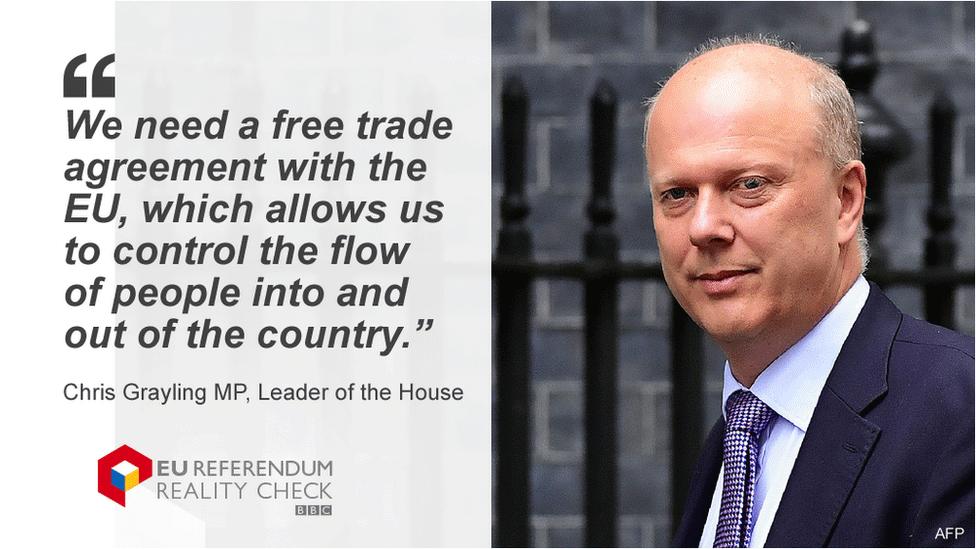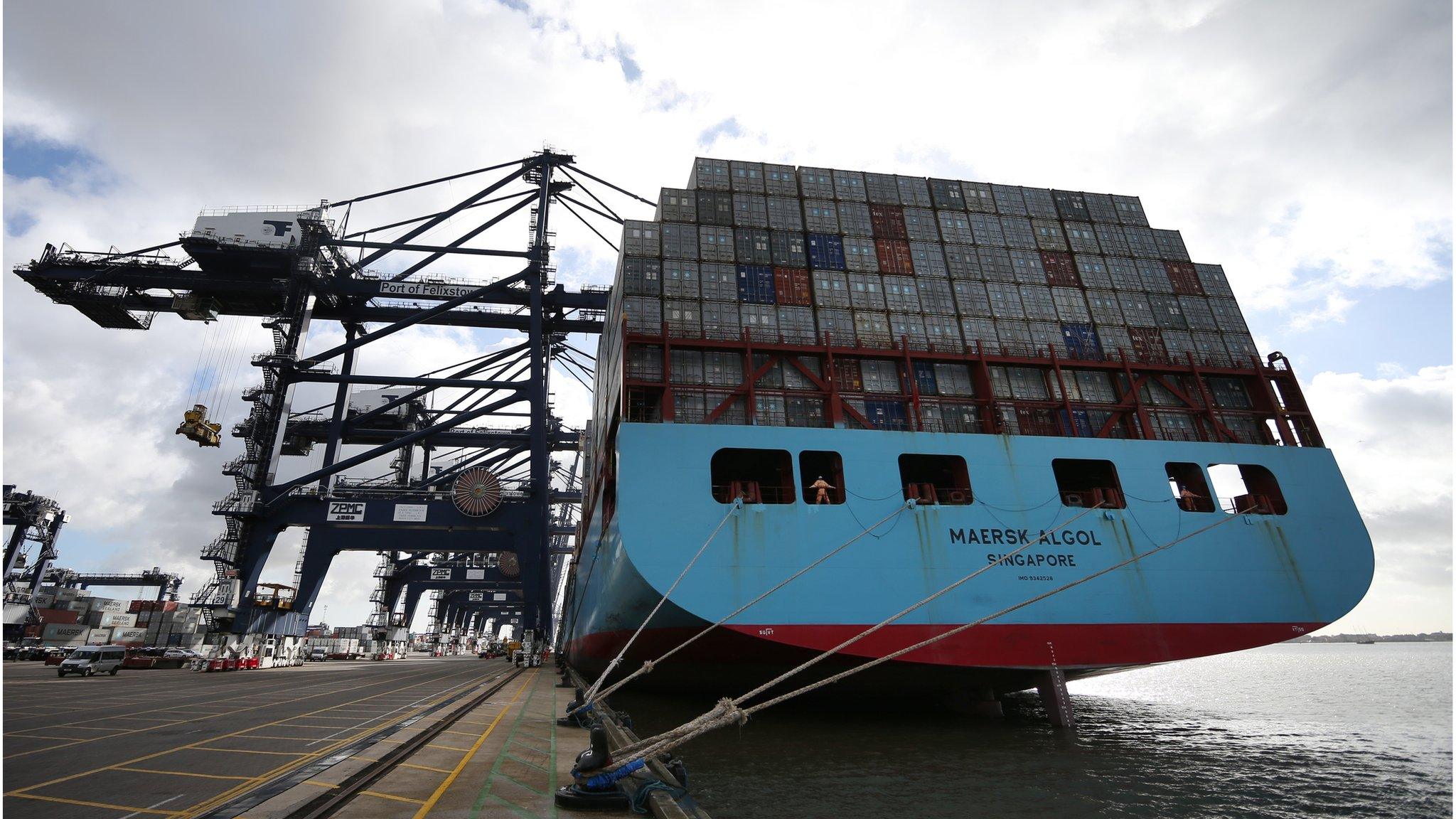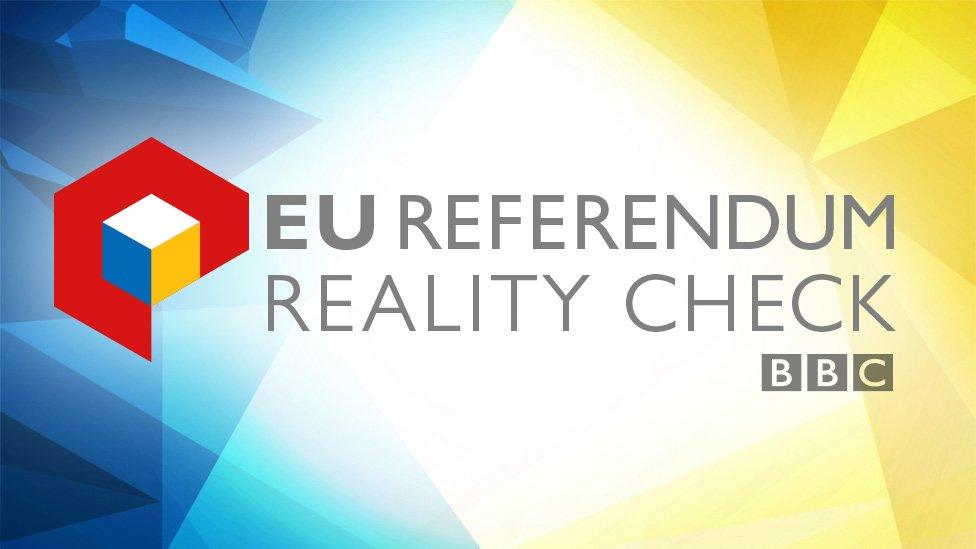Reality Check: Could there be free trade without free movement?
- Published

The claim: There could be a free trade agreement between the UK and the European Union that allows the UK to limit freedom of movement.
Reality Check verdict: The UK can aim for a deal that allows full preferential access to the single market without having to accept freedom of movement, but no country has managed such a deal so far and some European politicians have said they would oppose it.
Chris Grayling, leader of the House of Commons, has told BBC Radio 4: "We need a free trade agreement with the European Union, which allows us to control the flow of people into and out of the country."
Is that realistic?
The 28 members of the European Union all get to trade on the single market without barriers, but they all have to accept freedom of movement, which means that any EU citizen is free to live, work or study in any member state.
There are other countries that have full access to the single market without being members of the EU.
Norway is a member of the European Economic Area. It has to contribute to the EU Budget and accept freedom of movement, although it does not get to vote on EU policies.
As a member of the European Free Trade Association, Switzerland has access to the single market in some, but not all, areas of trade. It makes a smaller contribution to the EU Budget than Norway does.
At the moment, Switzerland accepts freedom of movement, although it held a referendum in 2014 that supported placing limits on immigration.
Canada has been negotiating a free trade agreement with the EU that does not require it to accept freedom of movement, although it has not yet been implemented.
The deal eliminates most trade tariffs, but some "sensitive" food items, including eggs and chicken, are not covered by it.
Services make up about 80% of the UK economy, yet they are only partially covered by Canada's deal. Crucially, a deal like Canada's would not give UK financial services the EU market access that they have now. It would be hard for London-based banks to get "passporting" rights for their services in the EU - rights that they value hugely now.
Chris Grayling pointed out that "today, there is no single market in services". It is true that there is not an overall single market in services, although the EU is working on developing one.
But there are EU rules, such as passporting for financial services (which allows banks authorised to operate in one member state to operate in all of them) that help services providers.
Also, freedom of movement is helpful to many companies offering services throughout Europe as it allows them to send staff to offer support or training, for example, without needing any form of working visa.
Throughout the referendum campaign, Leave campaigners argued that the UK would be able to get a better deal than any currently in existence because it is such a big customer of European products.
On the other hand, Joseph Daul, the leader of the European People's Party, which is the biggest group in the European Parliament, has said he would "firmly oppose any attempts to interfere with the freedom of movement".



- Published27 June 2016

- Published17 June 2016

- Published9 June 2016

- Published11 May 2016

- Published19 April 2016

- Published18 April 2016

- Published22 February 2016
